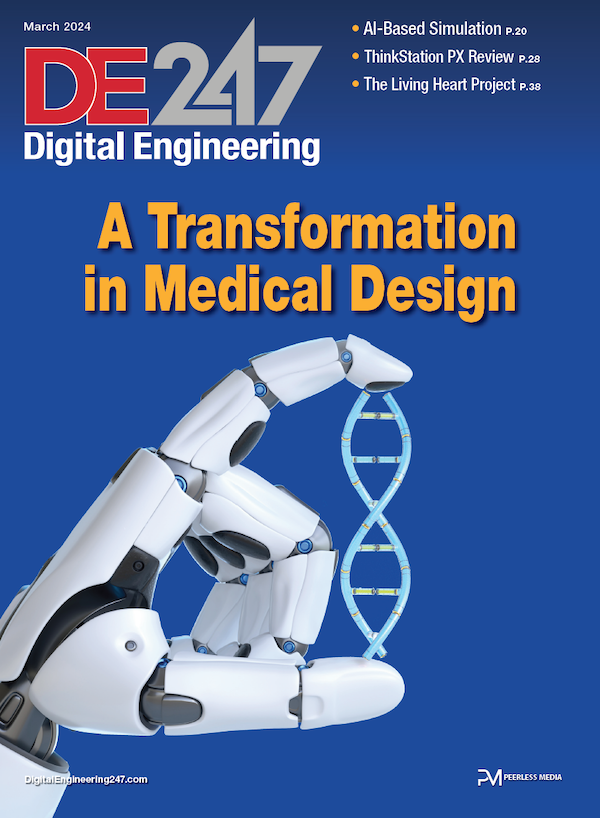Editor’s Pick: AMD Ryzen 7 Processors

AMD’s new 8-core Ryzen 7 desktop processors are based on the company’s AMD Zen core architecture, which, AMD says, delivers a 52% improvement in instructions-per-clock cycle over its previous generation core, without increasing power. Image courtesy of AMD Inc.
Latest News
March 15, 2017
Dear DE Reader:
To say that today’s Editor’s Pick of the Week is interesting grossly understates matters.
AMD just began shipments of three of its new Ryzen line of desktop CPUs to do-it-yourself outlets like Amazon and motherboard designers like MSI. They say that some motherboards are already available. It’ll be a little while longer before the big system developers have complete desktop systems available. Still, if you’re into CAD rendering, creating content, gaming and the like, these processors have a lot of features that should interest you. And that includes cost. More on moola in a bit.
 AMD’s new 8-core Ryzen 7 desktop processors are based on the company’s AMD Zen core architecture, which, AMD says, delivers a 52% improvement in instructions-per-clock cycle over its previous generation core, without increasing power. Image courtesy of AMD Inc.
AMD’s new 8-core Ryzen 7 desktop processors are based on the company’s AMD Zen core architecture, which, AMD says, delivers a 52% improvement in instructions-per-clock cycle over its previous generation core, without increasing power. Image courtesy of AMD Inc.Collectively called the Ryzen 7 series, these processors have eight cores and support 16 threads. They are the first processors based on AMD’s new high-throughput, low-power Zen architecture. This architecture, according to AMD, has something like a 52 percent improvement in instructions-per-clock cycle over their previous generation core. It has this neat set of learning and adapting capabilities that help the Ryzen processors tailor their performance to you and your applications.
The Ryzen 7 processor family has three members: the 1700, the 1700X and the 1800X. They offer base clock speeds of 3GHz, 3.4GHz and 3.6GHz, respectively. Their turbo speed runs from 3.7GHz to 4GHz. Throughput gets a further boost from their support of DDR4 (double data rate fourth-generation) memory, two memory channels and their three-tier cache system: 768KB of L1 cache, 4MB L2 cache and 16MB L3 cache.
Now, your CAD application is likely single-threaded, so it’s not going to leverage those cores but it should surely take advantage of the Ryzen 7’s speed. With those clock speeds and those eight cores, your rendering software should exhibit new levels of spunk.
Further, you can customize the Ryzen’s performance. AMD ships the chips with the multiplier-unlocked and offers a free downloadable utility with tools for overclocking control. Be careful playing with overclocking.
Moola: AMD says that the suggested pricing for Ryzen 7 processors ranges from $329 for the Ryzen 7 1700 to $499 for the Ryzen 7 1800X. That’s in line with Amazon’s pricing as I write this.
You can learn more about the Ryzen 7 processors from today’s Editor’s Pick of the Week write-up. Hit the link at the end of the main text to go to AMD’s dedicated landing page on the CPUs. You’ll find more details there as well as a bunch of videos. Interesting stuff. Hit the link and get on it.
Thanks, Pal. – Lockwood
Anthony J. Lockwood
Editor at Large, DE
Subscribe to our FREE magazine, FREE email newsletters or both!
Latest News
About the Author
Anthony J. Lockwood is Digital Engineering’s founding editor. He is now retired. Contact him via [email protected].
Follow DE





